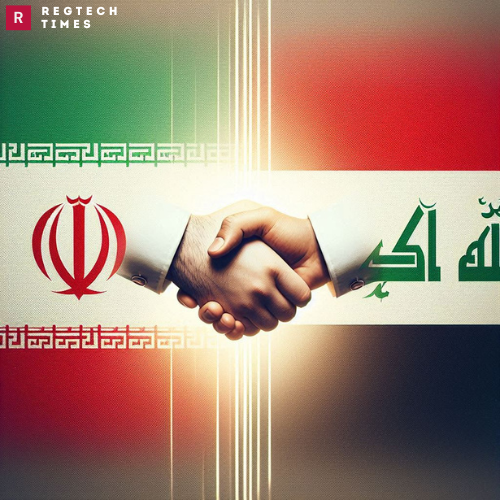In a significant move that highlights the strengthening relationship between Iran and Iraq, the two nations have signed 14 new agreements aimed at deepening their bilateral cooperation. This development comes amid ongoing US sanctions and geopolitical tensions, marking a pivotal moment in the evolving dynamics of the Middle East.
Strengthening Iran and Iraq Relations
The latest agreements represent a major milestone in the relationship between Iran and Iraq, both of which are Shiite-majority countries. Their ties have grown notably closer since the 2003 US-led invasion of Iraq, which led to the removal of Saddam Hussein and reshaped the region’s political landscape. President Masoud Pezeshkian of Iran made his first official trip abroad to Iraq in September 2024, signaling the importance of this partnership.
During his visit, Pezeshkian and Iraqi Prime Minister Mohammed Shia al-Sudani announced the signing of 14 cooperation memorandums. Pezeshkian described these agreements as “the starting point of the expansion of cooperation,” emphasizing the potential for this partnership to address regional challenges. “If we are together, we will avoid falling into the fire,” he remarked, highlighting the mutual benefits of their strengthened ties.
Economic and Energy Cooperation
A core component of the agreements involves economic and energy cooperation, which is critical for both nations. Iran has become one of Iraq’s top trade partners in recent years, with non-oil trade between the two countries reaching nearly $5 billion as of March 2024. This economic relationship highlights the growing interdependence between Tehran and Baghdad.
Moreover, Iran plays a vital role in Iraq’s energy sector. The country exports millions of cubic meters of gas daily to Iraq, which is essential for powering Iraq’s electricity plants. These gas exports are allowed under a waiver from US sanctions, which has been regularly renewed to support Iraq’s energy needs. The new agreements are expected to further bolster this cooperation, enhancing economic resilience for both nations.
Strategic and Long-Term Plans
The discussions between Iran and Iraq during Pezeshkian’s visit also focused on long-term strategic plans. By aligning their interests, Iran and Iraq aim to create a robust partnership capable of navigating geopolitical and economic challenges. The agreements reflect a shared vision for deeper cooperation in various sectors, including infrastructure, trade, and regional security.
Explosive Allegations: Iran’s Missiles Deal with Russia and Its Global Fallout
Pezeshkian’s emphasis on strengthening regional relations aligns with Iran’s broader foreign policy strategy. By enhancing ties with Iraq, Iran seeks to mitigate the impact of Western sanctions, particularly those imposed after the US withdrew from the 2015 nuclear agreement. The agreements serve as a strategic maneuver to alleviate economic pressures and enhance regional influence.
Geopolitical Implications
The enhanced relationship between Iran and Iraq carries significant geopolitical implications. Iran’s growing influence in Iraq is evident through its strong political connections and alliances within the Iraqi government and parliament. The new agreements are likely to reinforce Iran’s position in Baghdad and bolster its regional influence.
For Iraq, the strengthened relationship with Iran provides a valuable counterbalance to its internal and external challenges. By deepening economic and strategic ties with its neighbor, Iraq can better address its development needs and navigate its complex geopolitical environment.
The signing of 14 new agreements between Iran and Iraq marks a significant step in the evolution of their bilateral relationship. Focused on economic, energy, and strategic cooperation, these agreements reflect a commitment to mutual growth and stability. As Iran and Iraq move forward with their enhanced partnership, their collaboration is expected to have a profound impact on the political and economic landscape of the Middle East.
This strengthened alliance between Iran and Iraq highlights broader trends in regional diplomacy and cooperation. By reinforcing their ties, both countries aim to navigate the challenges posed by international sanctions and geopolitical tensions, positioning themselves for a more resilient and influential role in the region.


